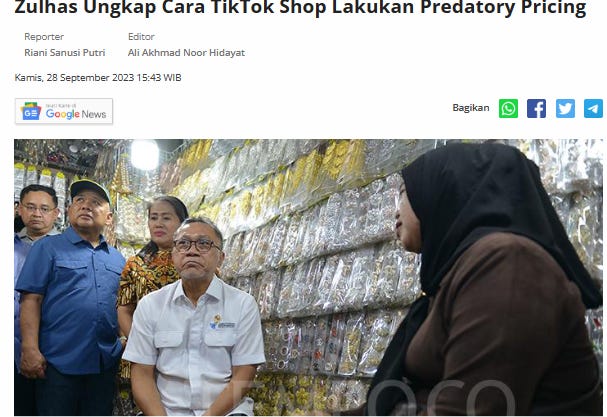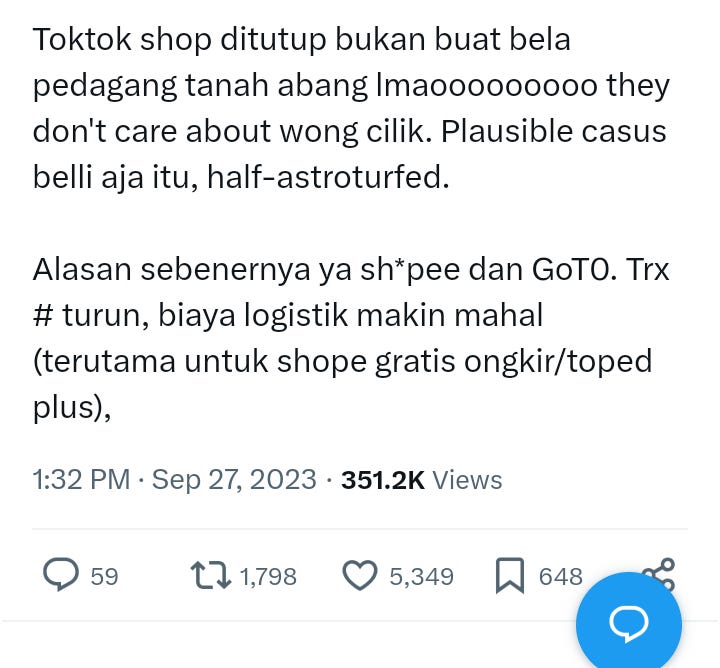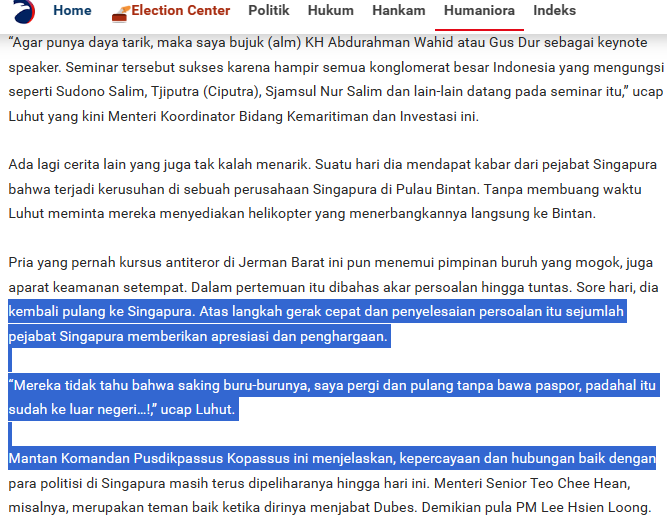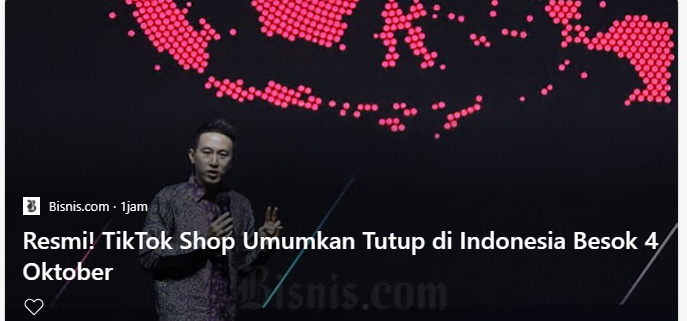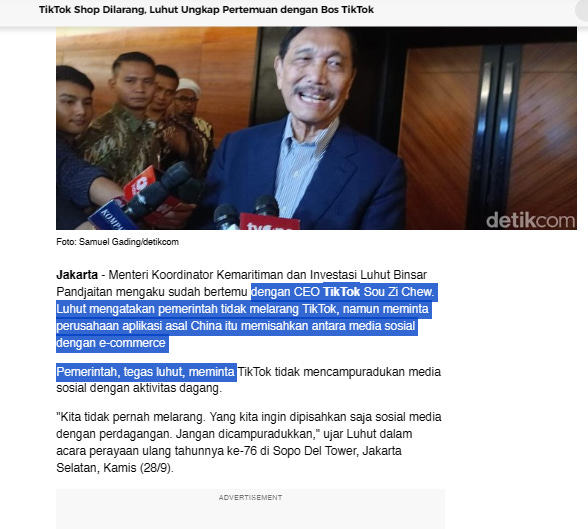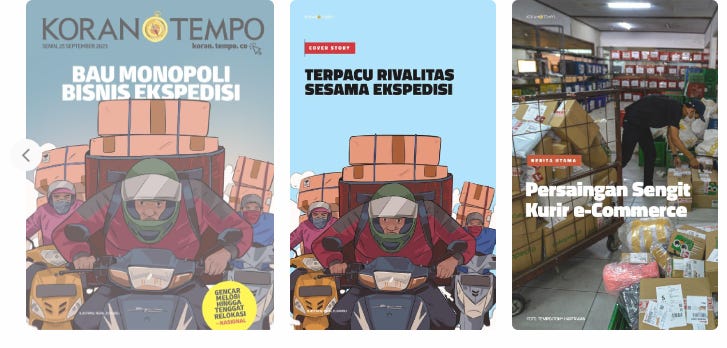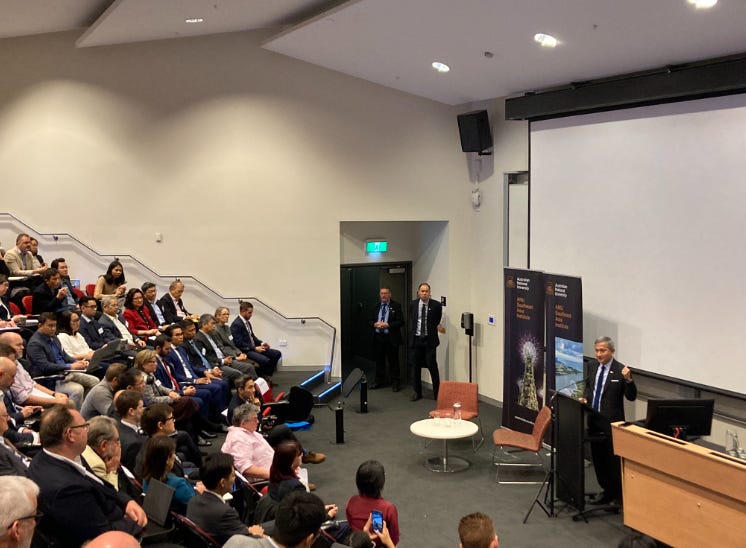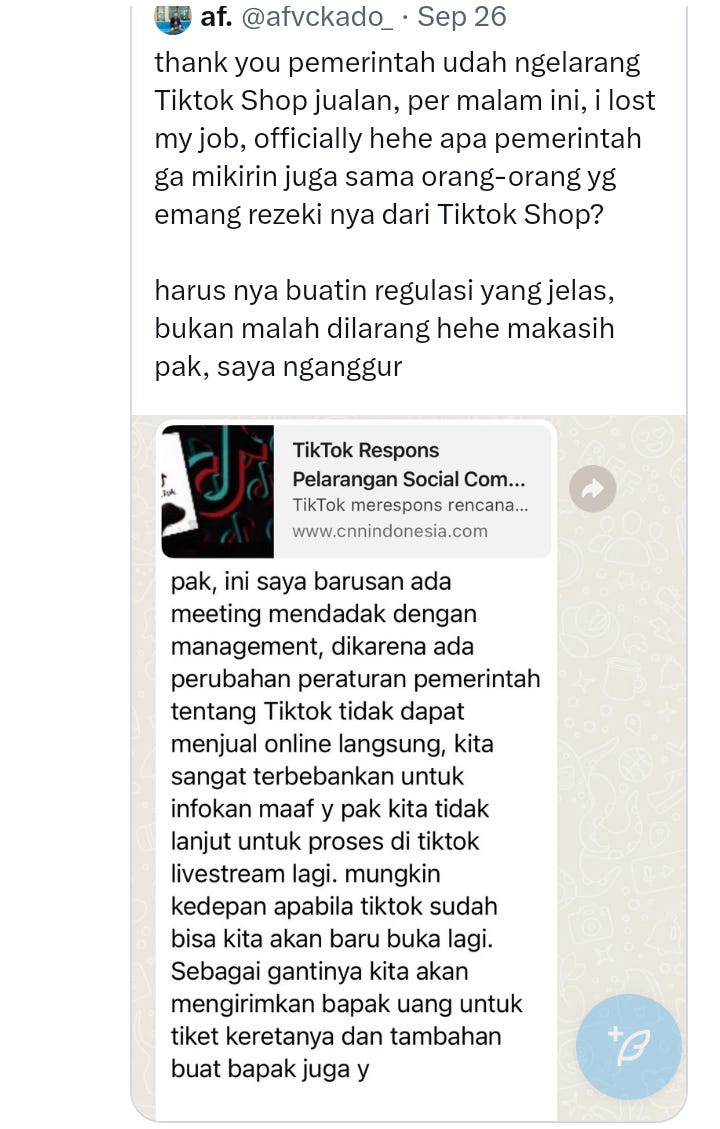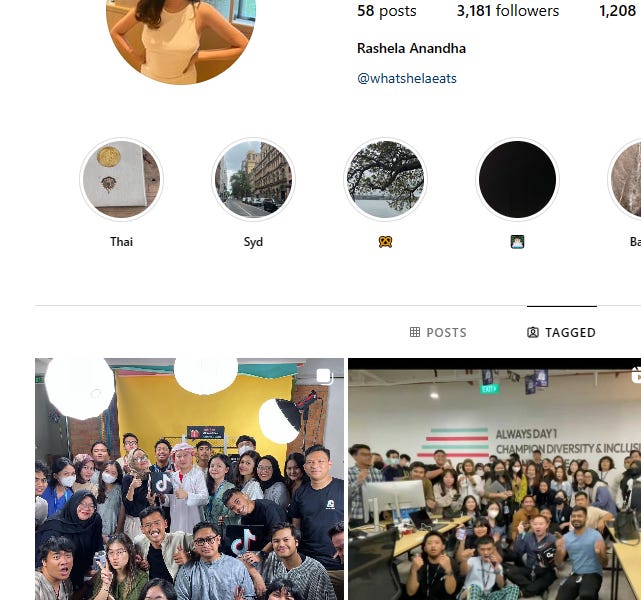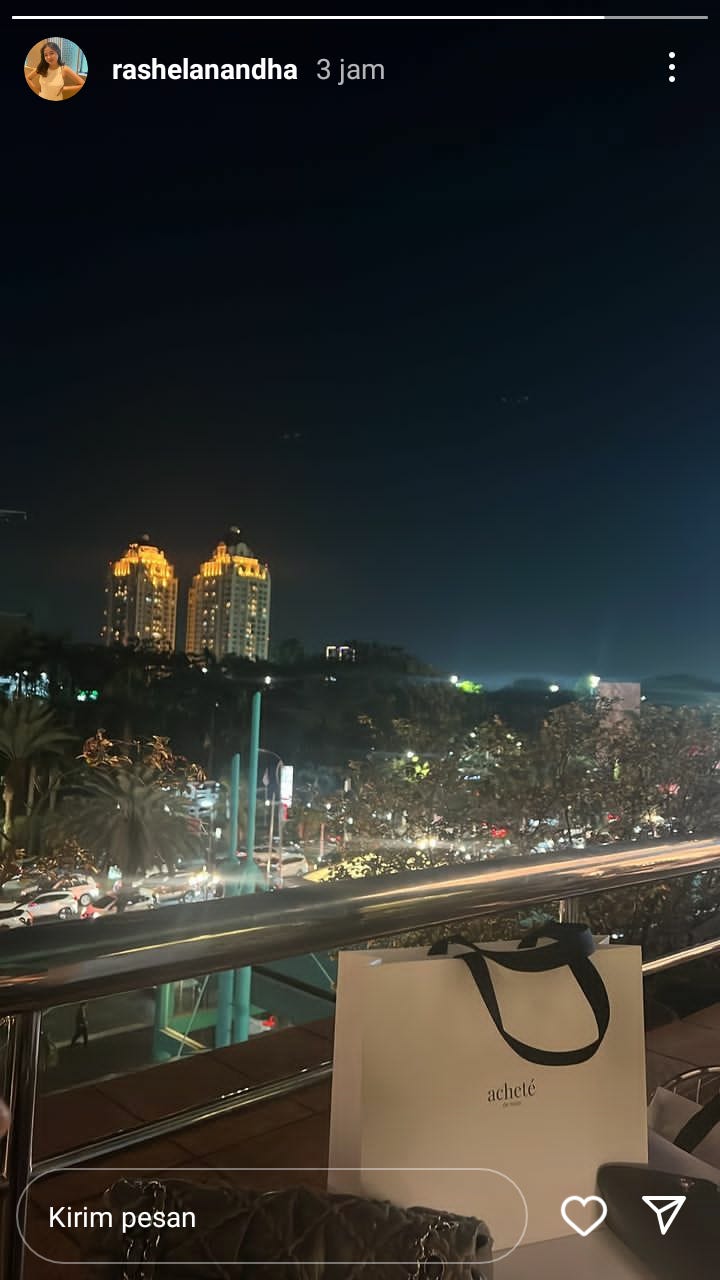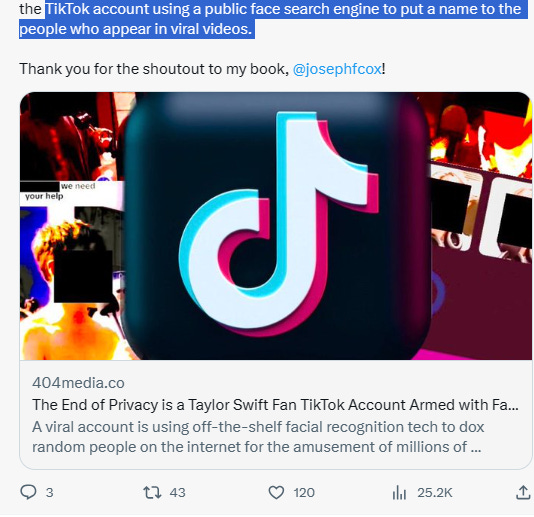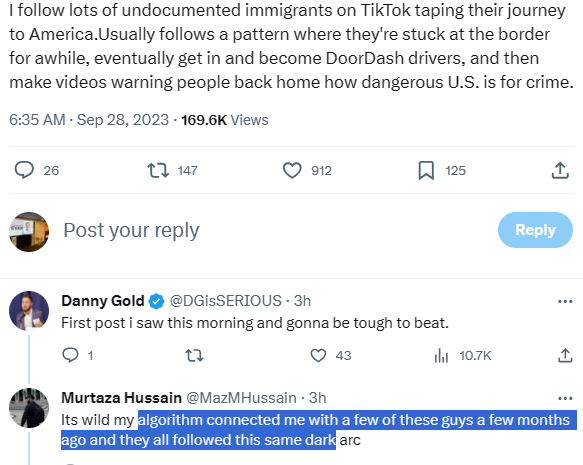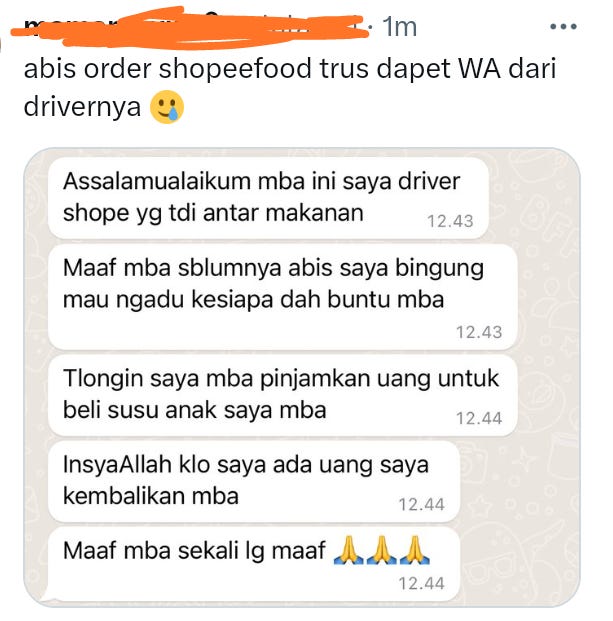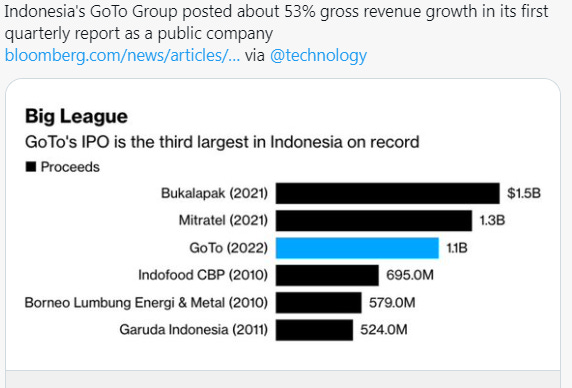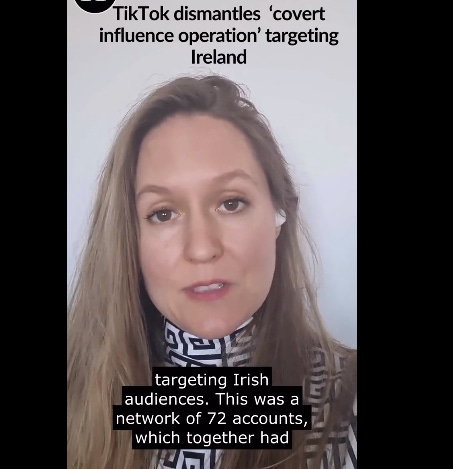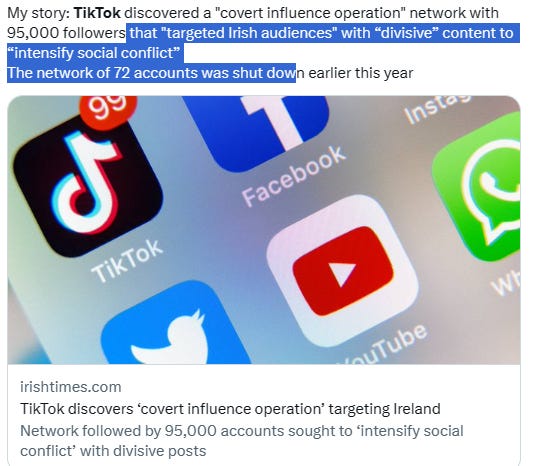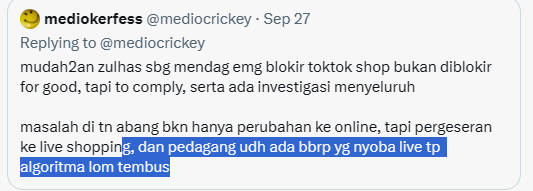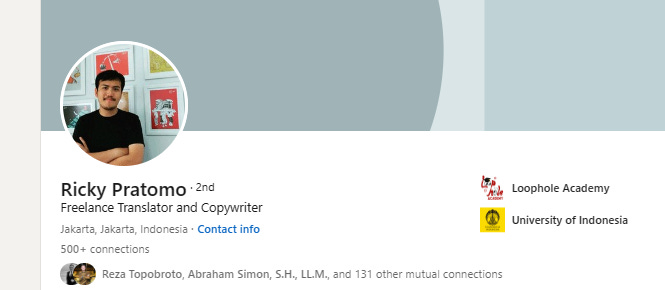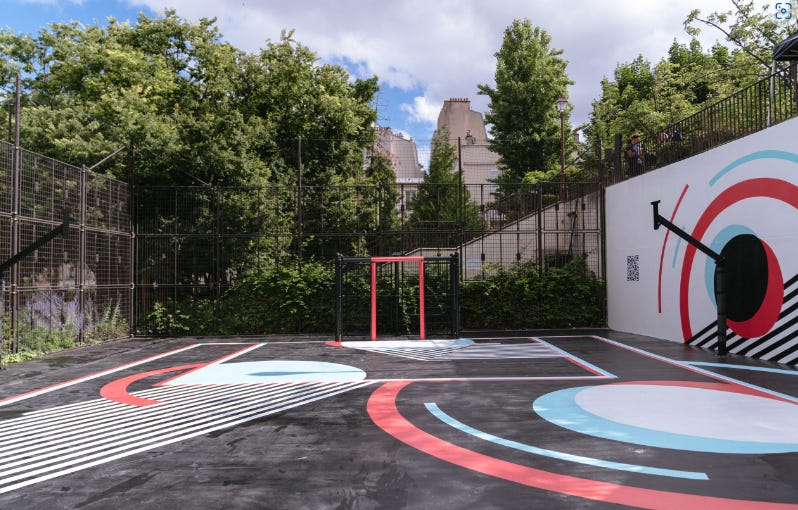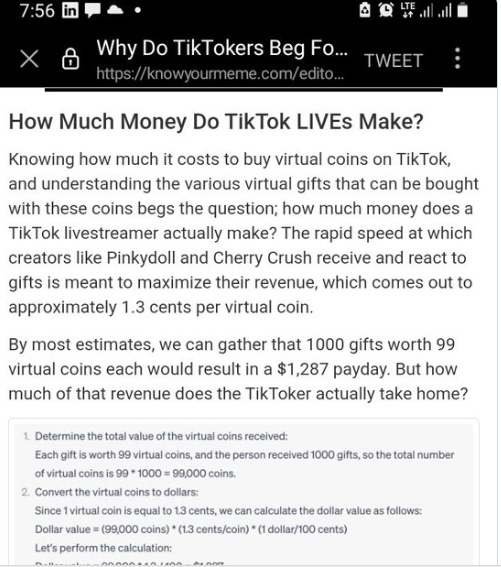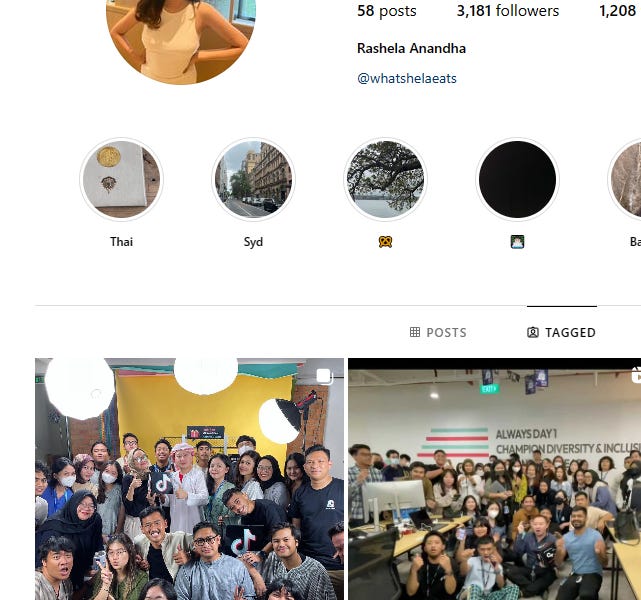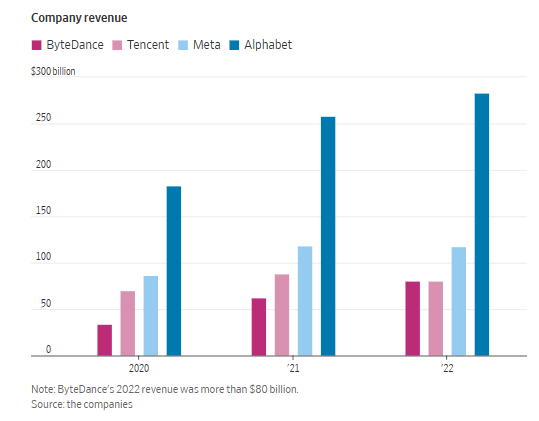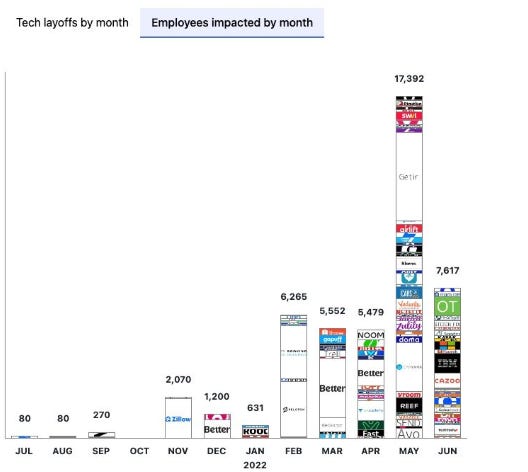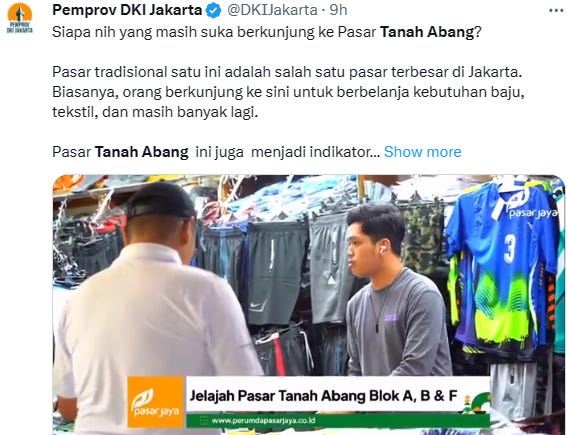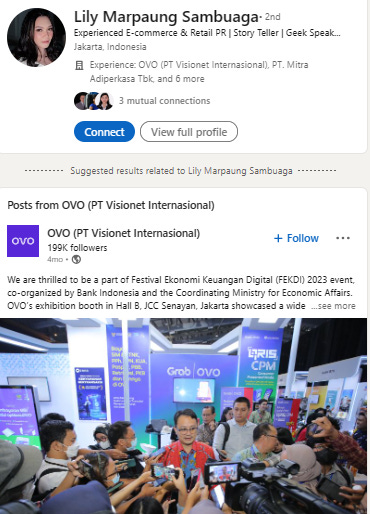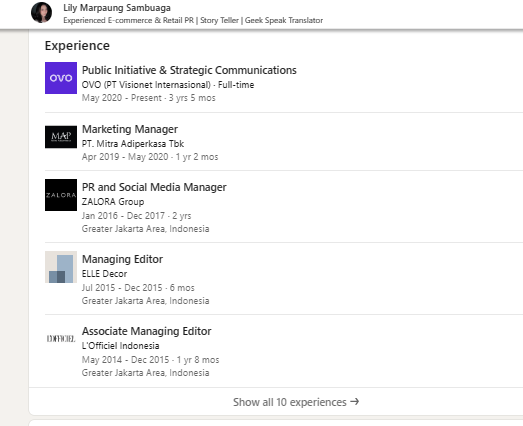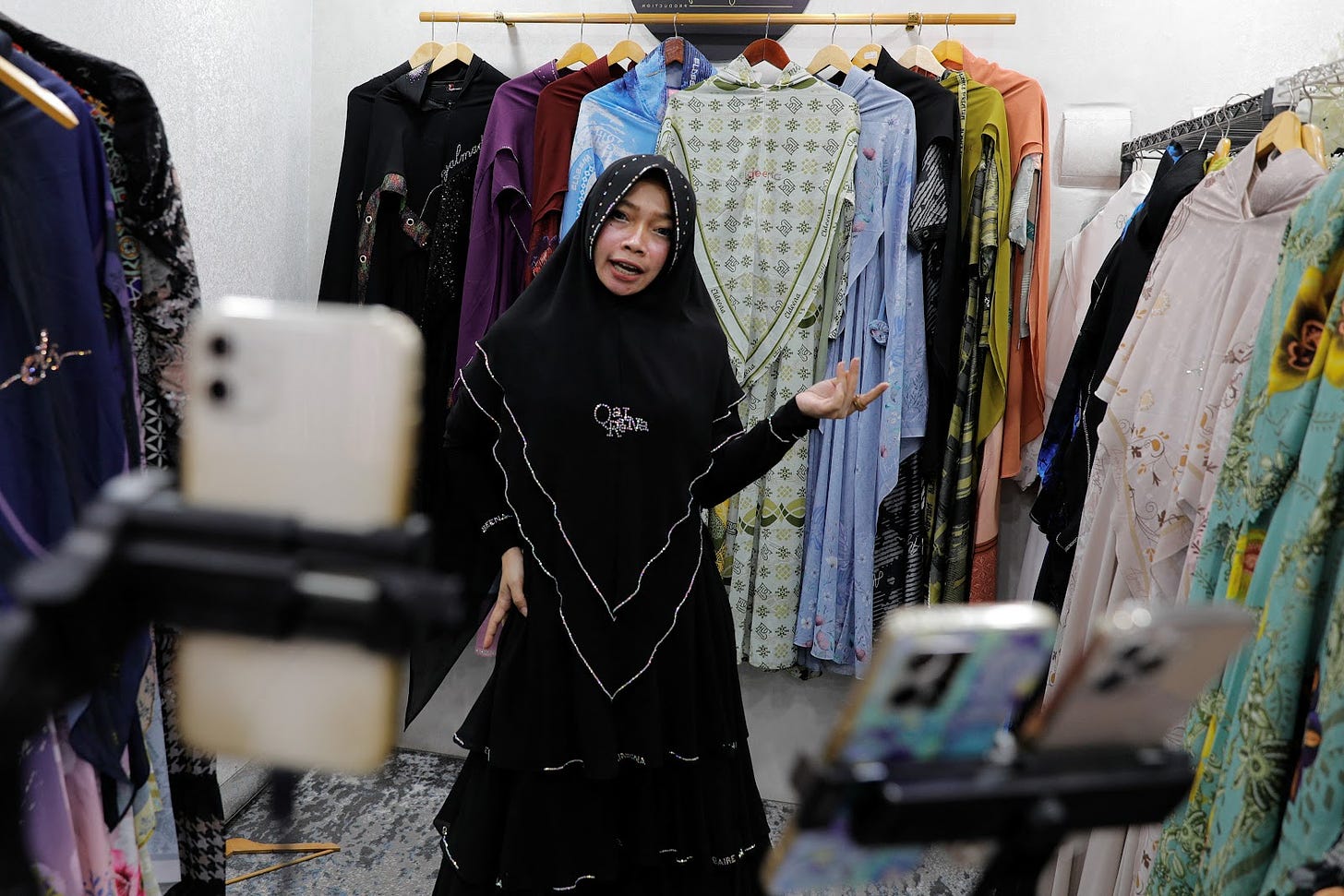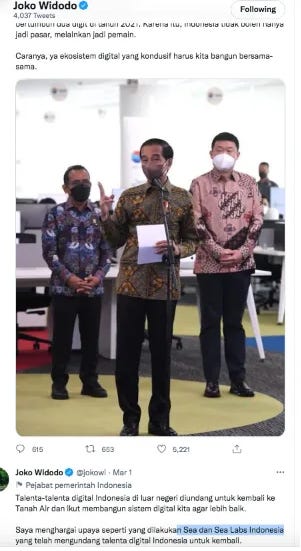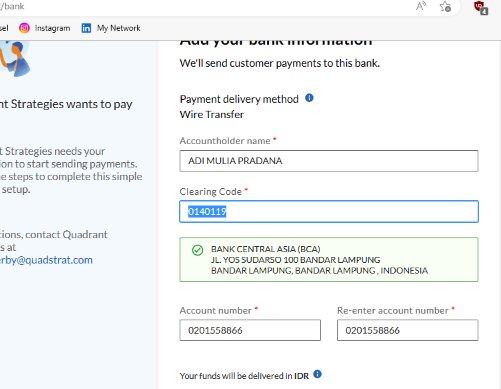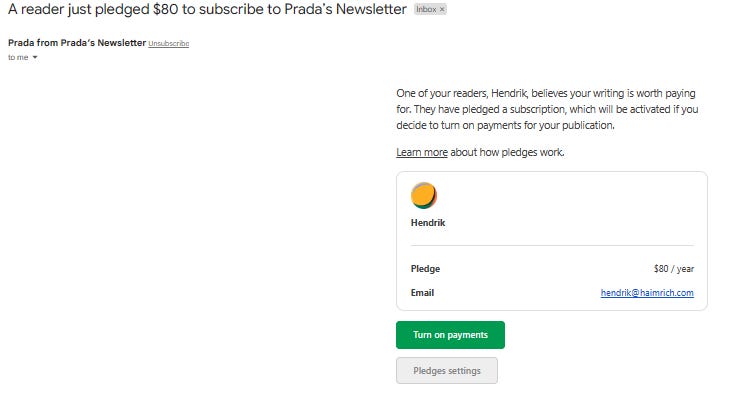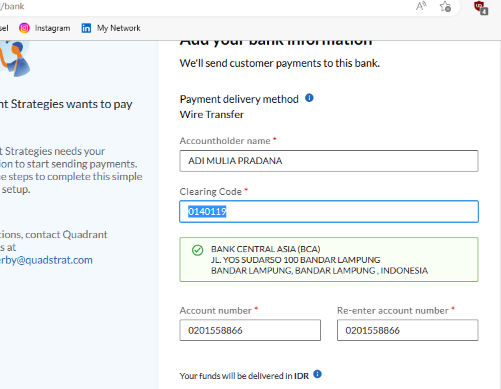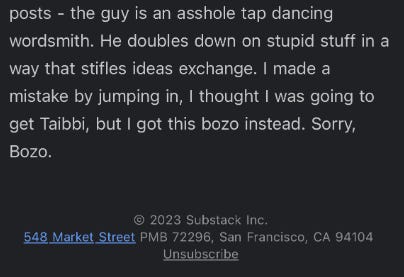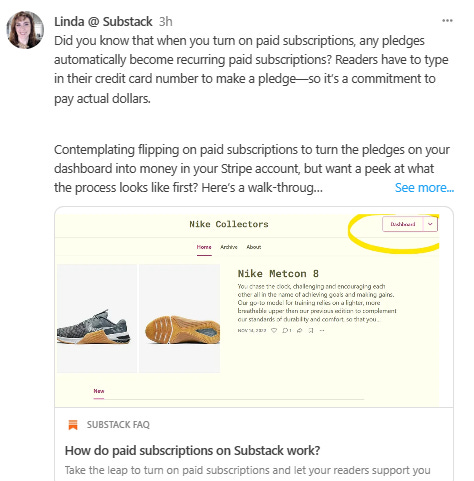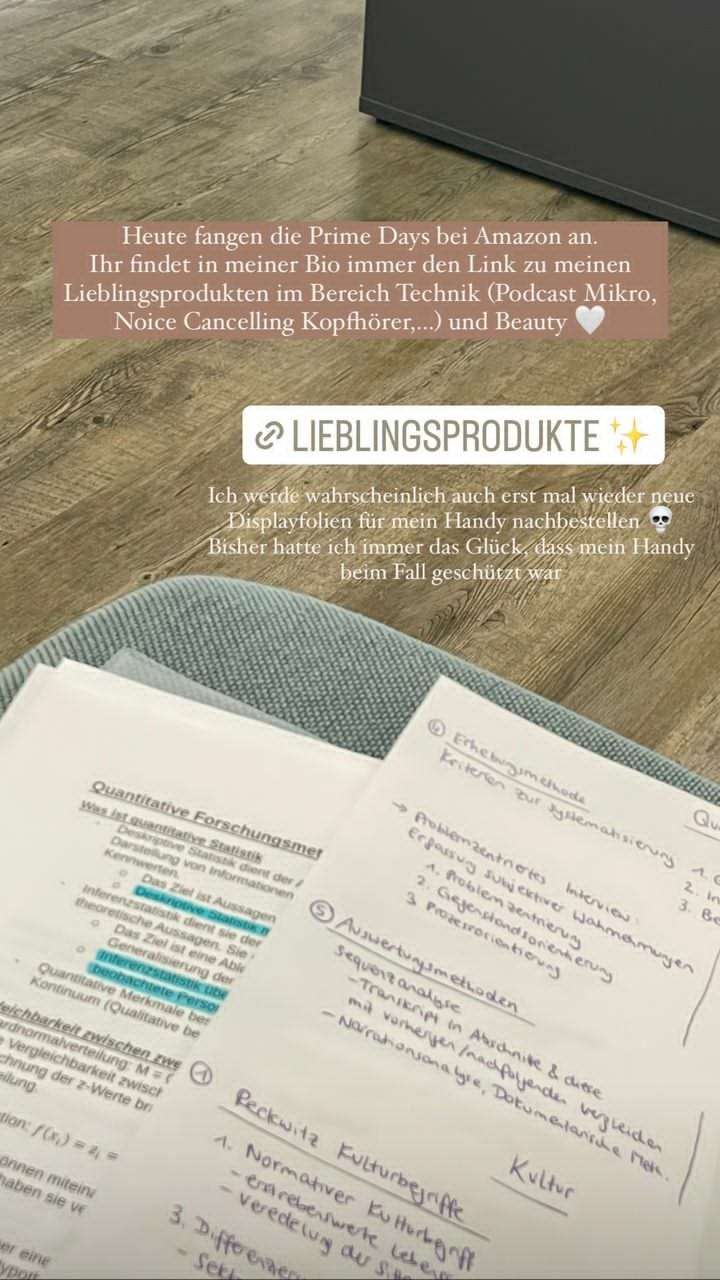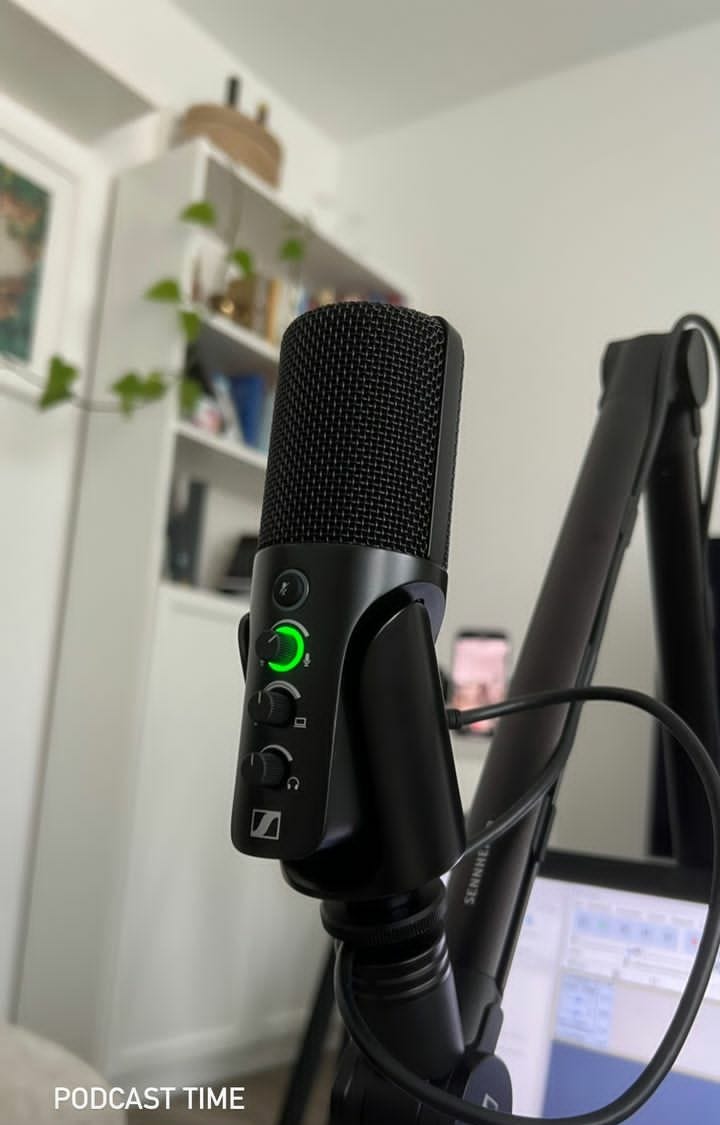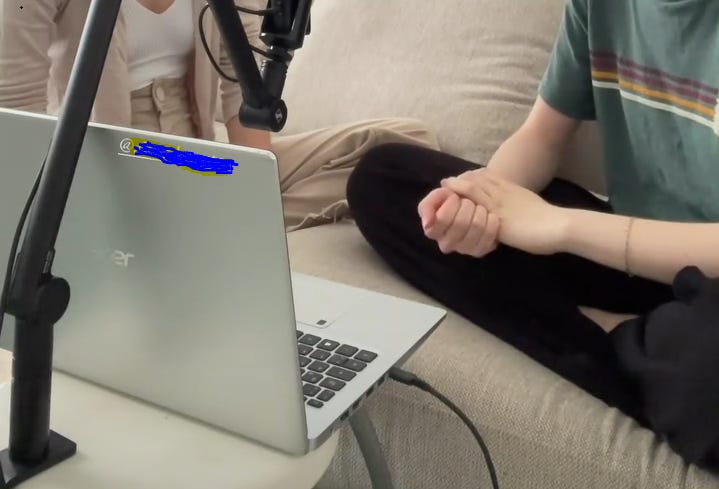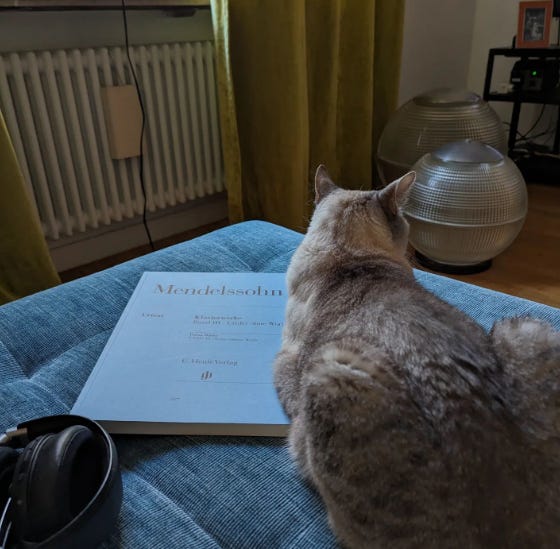Sad-Tragic Battle Between DOUYIN / ByteDance of TikTok, Gojek-Tokopedia, and Shopee in Indonesia
DC 6.01am
[translate = The Phenomenon of grocery markets [the bankruptcy of Tanahabang, biggest grocery-traditional market in asean, and also bankruptcy of Atrium Pasar Senen, 15th biggest malls in Jakarta] or a lot of supermalls in Indonesia is currently very quiet like malls in the U.S. since 12 years ago, actually not the primary reason why the Indonesian government banned TikTok Shop. The real reason is another tech player, Gojek - Tokopedia, Shopee worries that TikTok will kill the online market in Indonesia. Gradually, Gojek - Tokopedia and Shopee market share in indonesia decrease significantly by TikTok.]
Because long-arm his [literally complicated, long, but very strategic] connection with Singaporeans, Minister Luhut surprisingly can solve the TikTok saga very fast, if compared with other countries [especially in EU and US]. Pak Luhut was Indonesian ambassador for Singapore. And CEO ByteDance [Douyin, TikTok isn’t Chinese citizen but Singaporean citizen,Shou Zi Chew [周受资; pinyin: Zhōu Shòuzī]. If you realized, Shou Zi Chew was popular 5 months because get grilled by the US Congress when US congress ask him about everything else of TikTok business in the US. Shou Zi Chew agree to close business division of TikTok Shop, starting Oct 4th, 2023
Legendary story about Pak Luhut, because very respected by Singaporeans, even though he was ‘very fast’ to solve a problem about some investment Singaporean company in Bintan, and he shuttled, Singapore-Indonesia-Singapore without his passport because he try to solve the problem very quickly.
Back to Tiktok saga. According to his statement [when he celebrated birthday], everything about Tiktok in Indonesia was already solved because Pak Luhut already meet CEO Bytedance, face to face.
[Investigation by TEMPO, monopoly - predatory pricing in shipping online-related e-commerce business. Integrated with such as Gojek-Tokopedia, Shopee etc
We may agree with one principal thing = a lot of tech sectors in Indonesia get money from China, whatever percentage of shareholders, amid turbulence in China [especially in economic issues] in the last 6 years. Such as Shopee [Singapore], GOJEK-TOKOPEDIA [INDONESIA], with losing trillion rupiah because my [ex] friend in c-level, or TikTok - ByteDance [literally China, in China, TikTok branded with name DOUYIN], are receiving a gigantic invest by China. Even, the Singapore government itself tries to lure a lot of China mainland crazy rich to invest in Singapore, in the wake of heated tension between China - Taiwan. As more mainland Chinese cash and influence seeps out of China and into Singapore, the country’s high-wire balancing act between Beijing and Washington becomes even more precarious.”
As a victim 13-14 years systematic-surveillance and or doxxed in a lot of social media, my concern is very simple. Are the TikTok team in Indonesia acknowledged that selling data [privacy data, etc], ‘targeted selling’, or whatever say, and then the TikTok team enjoyed a lavish lifestyle with gigantic money [from China and or for ‘buyer of unique targeted-algorithm’] and repeated GOING ABROAD or enjoyed with luxury living, but on other side, the trader in a lot of traditional market facing bankruptcy. Are the domestic team in Jakarta still feeling not guilty with a lot of bankruptcy, at the same time, enjoying life.
But what if Shopee, Gojek-Tokopedia, ByteDance / TikTok kill each other in Indonesia. And even not counting other ‘predators’ in ASEAN = AMAZON. AMAZON in ASEAN chose Malaysia as its hub.
One of ByteDance staff, arguably just 2 years works in Indonesia, just too often travelling in Sydney, Bangkok, etc. Just same minute a lot of TikTok content creator name AFUCKADO in Twitter / x get fired after banned ‘online shopping via TikTok’ [yesterday], she just flexed her ambience - lifestyle with yoga club in…… in instagram. A lot of startup worker [for office/hq], ‘office side-worker’ are the frequent member ——which, cannot afford by other ‘primary / backbone of startup’, the ojol / online driver. Some yoga club must pay around 2 million/months, sometime more expensive rather than fitness. ojol/driver online not only don’t have money, but also don’t have a time to yoga, if compare ‘office worker’ of startup.
[AFUCKADO angry because new regulation by Indonesia government to banned TikTok Shop, make she lose a job as ‘live - content creator]
[contrary get fired for some ‘non-staff’ bytedance / tiktok, in stark contrast, a staff TikTok in Indonesia office enjoyed several times to abroad, even in the middle of coronavirus
[typical ads-stories about yoga in Jakarta]
2 Years ago, I really throw my mug after read in instagram stories, about some party by tech startup Gojek, hours after some ‘driver online’ [motocycle driver'] died because tired—too many hours of work.
Today, the problem [stark] contrast revenue - salary ‘in office’ vs ‘in field’ between startup workers and online driver still haunted. Just today, a driver online, ladies driver, maybe in tears, asking / begging some additional money to buy a milk / instant formula for her babies. If compare still lavish lifestyle by startup workers in office.
[translate = some ladies-online driver begged to additional money because worried she cannot afford to buy milk/formula infants for her babies
Indonesia has banned e-commerce transactions on social media platforms, the trade minister said on Wednesday, in a blow to short video app TikTok, which is doubling down on Southeast Asia's biggest economy to boost its e-commerce business.
The government said the move, which takes effect immediately, is aimed at protecting offline merchants and marketplaces, adding that predatory pricing on social media platforms is threatening small and medium-sized enterprises.
According to the lawyer in Indonesia, Ricky Pratomo, he believes that the traders in Tanahabang and other traditional markets actually already try to optimize TikTok accounts to sell from Tanahabang or other markets. But he suspected that some systematic discrimination on algorithms in Tiktok made nearly all traders in Tanahabang or other traditional markets in Indonesia still failed to boost selling a product. Algorithm concern about TikTok actually not only Indonesia, but globally.
Indonesia Gen Z, also in another country, is currently in the stage of what the TikTok girlies call "delulu" about what it's like to work with a malignant narcissist. Narcissists will not allow anyone else to flex like this. Apparently, 50% of the IG/TikTok wives [especially married under 26 years old] posing this question need to divorce their proto-white supremacist spouses immediately, the other half are hopefully harmless. Too many people ruin their surrealist creations by grinning at the camera. Gen Z's native nihilism and love of visual non-sequiturs in TikToks, the way their entertainment is a core surrealism that depends on lack of context. The kids are alright. Gen Z's native nihilism and love of visual non-sequiturs in TikToks, the way their entertainment is a core surrealism that depends on lack of context. The kids are alright. With all these creators, someone, after all, needs to be the audience.
TikTok sent everyone to all of the same places at once. It’s a big ass world out there, but apparently there’s like 10 hot spots on social media so everyone in the entire world descends upon them concurrently. The fact that it takes tens of thousands of these interactions to make more than $134 a day seems like a wild indictment of social media earning potential. Thought they were making money. But I feel like they are being exploited. Tiktok takes approximately 50% of their payday.
TikTok to the US Senate, addressing how TikTok storing creator data in China squares w execs' testimony that US user data is stored in the US: "Creators are individuals who, unlike typical users, want to build audiences for their content and seek monetization opportunities"
Employees of the Chinese-owned video app have regularly posted user information on a messaging and collaboration tool called Lark, according to internal documents.
In August 2021, TikTok received a complaint from a British user, who flagged that a man had been “exposing himself and playing with himself” on a livestream she hosted on the video app. She also described past abuse she had experienced.
To address the complaint, TikTok employees shared the incident on an internal messaging and collaboration tool called Lark. The British woman’s personal data — including her photo, country of residence, internet protocol address, device and user IDs — were also posted on the platform, which is similar to Slack and Microsoft Teams.
Her information was just one piece of TikTok user data shared on Lark, which is used every day by thousands of employees of the app’s Chinese owner, ByteDance, including by those in China. According to the documents obtained by The Times, the driver’s licenses of American users were also accessible on the platform, as were some users’ potentially illegal content, such as child sexual abuse materials. In many cases, the information was available in Lark “groups” — essentially chat rooms of employees — with thousands of members.
The profusion of user data on Lark alarmed some TikTok employees, especially since ByteDance workers in China and elsewhere could easily see the material, according to internal reports and four current and former employees. Since at least July 2021, several security employees have warned ByteDance and TikTok executives about risks tied to the platform, according to the documents and the current and former workers.
“Should Beijing-based employees be owners of groups that contain secret” data of users, one TikTok employee asked in an internal report last July.
The user materials on Lark raise questions about TikTok’s data and privacy practices and show how intertwined it is with ByteDance, just as the video app faces mounting scrutiny over its potential security risks and ties to China. Last week, Montana’s governor signed a bill banning TikTok in the state as of Jan. 1. The app has also been prohibited at universities and government agencies and by the military.
TikTok has been under pressure for years to cordon off its U.S. operations because of concerns that it might provide data on American users to the Chinese authorities. To continue operating in the United States, TikTok last year submitted a plan to the Biden administration, called Project Texas, laying out how it would store American user information inside the country and wall off the data from ByteDance and TikTok employees outside the United States.
TikTok has played down the access that its China-based workers have to U.S. user data. In a congressional hearing in March, TikTok’s chief executive, Shou Chew, said that such data was mainly used by engineers in China for “business purposes” and that the company had “rigorous data access protocols” for protecting users. He said much of the user information available to engineers was already public.
The internal reports and communications from Lark appear to contradict Mr. Chew’s statements. Lark data from TikTok was also stored on servers in China as of late last year, the four current and former employees said.
The documents seen by The Times included dozens of screenshots of reports, chat messages and employee comments on Lark, as well as video and audio of internal communications, spanning 2019 to 2022.
Alex Haurek, a TikTok spokesman, said they did not accurately depict “how we handle protected U.S. user data, nor the progress we’ve made under Project Texas.”
He added that TikTok was in the process of deleting U.S. user data that it collected before June 2022, when it changed the way it handled information about American users and began sending that data to U.S.-based servers owned by a third party rather than those owned by TikTok or ByteDance.
The company didn’t respond to questions about whether Lark data was stored in China. It declined to answer questions about the involvement of China-based employees in creating and sharing TikTok user data in Lark groups, but said many of the chat rooms were “shut down last year after reviewing internal concerns.”
Alex Stamos, the director of Stanford University’s Internet Observatory and Facebook’s former chief information security officer, said securing user data across an organization was “the hardest technical project” for a social media company’s security team. TikTok’s problems, he added, are compounded by ByteDance’s ownership.
“Lark shows you that all the back-end processes are overseen by ByteDance,” he said. “TikTok is a thin veneer on ByteDance.”
ByteDance introduced Lark in 2017. The tool, which has a Chinese-only equivalent known as Feishu, is used by all ByteDance subsidiaries, including TikTok and its 7,000 U.S. employees. Lark features a chatting platform, videoconferencing, task management and document collaboration features. When Mr. Chew was asked about Lark in the March hearing, he said it was like “any other instant messaging tool” for corporations and compared it to Slack.
Indonesia has banned e-commerce transactions on social media platforms, the trade minister said on Wednesday, in a blow to short video app TikTok, which is doubling down on Southeast Asia's biggest economy to boost its e-commerce business.
The government said the move, which takes effect immediately, is aimed at protecting offline merchants and marketplaces, adding that predatory pricing on social media platforms is threatening small and medium-sized enterprises.
The move comes just three months after TikTok pledged to invest billion of dollars in Southeast Asia, mainly in Indonesia, over the next few years in a major push to build its e-commerce platform TikTok Shop.
TikTok, owned by China's ByteDance, has 125 million active monthly users in Indonesia and has been looking to translate the large user base into a major e-commerce revenue source.
A TikTok Indonesia spokesperson said it would pursue a constructive path forward and was "deeply concerned" with the announcement, "particularly how it would impact the livelihoods of the 6 million" local sellers active on TikTok Shop.
Indonesia Trade Minister Zulkifli Hasan on Wednesday told reporters that the regulation is intended to ensure "fair and just" business competition, adding that it was also intended to ensure data protection of users.
He warned of letting social media become an e-commerce platform, shop, and bank all at the same time.
[9 hours ago, posted by DKI Jakarta government twitter / x official account. Provincial Administration of Jakarta, via PASAR JAYA, is owner Tanahabang]
He would claim to have experienced economic hardship as a child, saying he learnt to work hard by selling eggs produced on the farm. He supported himself with jobs from washing taxis to selling drinks, and then door-to-door salesman of pots.
He watched the realism of struggling low-income people in Indonesia. As (former) Minister of Forestry (21 October 2009-19 October 2014) and now Minister of Trade (15 June 2022-now), he pushes himself “pro-growth, pro-job”, so he empathizes with [current] bankruptcy, quiet seller in a lot of traditional markets in Indonesia after predatory price-war by e-commerce and by TikTok Shop, stark contrast pricing grocery vs e-commerce.
[4 months ago, OVO linkedin posted an event with one attendance is Vice Minister of Trade Jerry Sambuaga, husband of Lily Marpaung Sambuaga]
The problem, or, implicit conflict of interest in his, again, Vice Minister, Jerry Adithya Ksatria Sambuaga. Jerry's spouse, Ms Lily is PR for OVO, startup-leading payment under Lippo Group. OVO was founded by Lippo Group and received permission to operate as a fintech company throughout Indonesia on 25 September 2017 with an e-money license for Bank Indonesia. OVO is a product of PT Visionet International, which is the digital financial services subsidiary of the Lippo Group. Vice Minister Jerry is son of Theo L. Sambuaga, Pak Theo was appointed to be CEO Lippo Group on September 2010 [13 years go].
The more complicated, although not extremely quiet like Tanahabang or Atrium Senen, a lot of malls under Lippo Group [mostly with title ‘VILLAGE’, such as Kemang Village, Pejaten Village] in entire Indonesia, not only Jakarta, actually facing ‘quiet attendance’ too. Tanahabang and Atrium Senen to be extreme cases because both markets are very strategic [near railway station and bus station] also actually only 3 km from the Presidential Palace. Tanahabang is 3 km to the west from Palace, Atrium Senen is 3 km to the east from Palace.
Back to Zukifli. He ensured a lot of plantation companies (including palm oil companies) to keep operating despite lack of fulfilled regulation, haze, burning forest, etc. Zulkifli himself is the son of a farmer in the middle forest in Lampung. President Jokowi reshuffles several ministers, including former Minister of Trade Muhammad Luthfi. After being appointed to be new Minister of Trade (replacing Muhammad Luthfi), he fights to ensure a lower price of palm oil after scarcity between October 2021-May 2022, and now fight for traditional market.
The new regulation also requires e-commerce platforms in Indonesia to set a minimum price of $100 for certain items that are directly purchased from abroad, according to the regulation document reviewed by Reuters, and that all products offered should meet local standards.
Zulkifli said TikTok had one week to comply with the regulation or face the threat of closure.
Indonesia Vice Minister of Trade Jerry Adithya Ksatria Sambuaga earlier this month named TikTok's live streaming features as an example of people selling goods on social media. Again, Jerry's spouse, Ms Lily is PR for OVO, startup-leading payment under Lippo Group. OVO was founded by Lippo Group and received permission to operate as a fintech company throughout Indonesia on 25 September 2017 with an e-money license for Bank Indonesia. OVO is a product of PT Visionet International, which is the digital financial services subsidiary of the Lippo Group. Vice Minister Jerry is son of Theo L. Sambuaga, Pak Theo was appointed to be CEO Lippo Group on September 2010 [13 years go].
The more complicated, although not extremely quiet like Tanahabang or Atrium Senen, a lot of malls under Lippo Group [mostly with title ‘VILLAGE’, such as Kemang Village, Pejaten Village] in entire Indonesia, not only Jakarta, actually facing ‘quiet attendance’ too.
[1/4]Bening Widayati, 40, sells clothes live on a social media platform inside her stall at the International Trade Center (ITC) mall in Jakarta, Indonesia, September 27, 2023. REUTERS/Willy Kurniawan Acquire Licensing Rights
Research firm BMI said TikTok would be the only business affected by the transaction ban and the move was unlikely to harm the digital marketplace industry's growth.
Indonesia's e-commerce market is dominated by the likes of homegrown tech firm GoTo's (GOTO.JK) Tokopedia, Sea's (SE.N) Shopee and Chinese e-commerce giant Alibaba's (9988.HK) Lazada.
E-commerce transactions in Indonesia amounted to nearly $52 billion last year and of that, 5% took place on TikTok, according to data from consultancy Momentum Works.
Indonesia is among the few markets where TikTok has launched TikTok Shop, as it seeks to leverage its large user base in the country.
Its 125 million active monthly users in Indonesia is almost on par with its user figures for Europe and behind U.S. users of more than 150 million. TikTok launched an online shopping service in the United States earlier this month.
Reactions from retailers were mixed.
Fahmi Ridho, a vendor selling clothes on TikTok, said the platform was a way for stores to recover from the blow dealt by the COVID-19 pandemic.
"Sales don't have to be necessarily through (brick and mortar) shops, you can do it online or wherever. ... Everything will still have a portion," he said.
But Edri, who goes by one name only and sells clothes at a major wholesale market in Jakarta, agreed with the regulation and stressed that there should be limits on items sold online.
OTHER PREDATOR. AMAZON
Same problem with Amazon.
The Federal Trade Commission’s chair, Lina Khan, has brought her long-awaited, audacious case against Amazon, signaling the Biden administration’s determination to restore an approach to competition law that has been in decline since the Carter administration. This will doubtless draw fresh criticism about her supposed overreach. But Amazon is precisely the kind of company that Congress had in mind in enacting America’s many antitrust laws.
Only more so: The Congress of 1890, which passed the first of those laws, could never have imagined the world we now inhabit.
The robber barons of that era hijacked the economy and politics, but they also faced the constraints of empires grounded in physical goods. They couldn’t lay a railroad or erect a steel mill without time-consuming capital and logistical hurdles. Today’s tech barons at huge platforms like Amazon, Google and Meta can deploy anticompetitive, deceptive and unfair tactics with the agility and speed of a digital system. As in any shell game, the quickness of the hand deceives the eye.
And Amazon is the apex predator of our platform era. Having first subsidized end-users and then offered favorable terms to business customers, Amazon was able to exploit its digital flexibility to lock both in and raid them for an ever-increasing share of the value they created. This program of redistribution from platform users to shareholders continued until Amazon became a vestigial place, a retail colossus barely hindered by either competition or regulation, where prices go up as quality goes down and the undifferentiated slurry of products from obscure brands is wreathed in inauthentic reviews.
It’s hard to remember that the internet was originally supposed to connect producers and shoppers, artists and audiences, and members of communities with one another without permission or control by third parties. In its early years, Amazon was good to its users. It sold products affordably and shipped them swiftly and reliably. It attended closely to the authenticity of the reviews that appeared on its site and operated an “honest search” that populated results pages with the best matches for each query.
Then Amazon started locking everyone in. Through Prime, it presold customers a year’s worth of shipping. With its digital publishing ventures, it nudged customers toward subscriptions, building a captive base of readers and deploying technology and expansive readings of obscure copyright laws to stop them from moving their books to other platforms. It opened Prime shipping at a low rate to its suppliers, relieving businesses of messy fulfillment logistics.
Meanwhile, its heavy subsidies, made possible by its investors’ appetite for backing an incipient monopoly, made it increasingly difficult for rival retail sites to gain traction, because Amazon’s seemingly bottomless coffers meant that it could sell goods below cost and extinguish any upstart that dared to compete with it. This created another form of lock-in for Amazon: It became progressively harder not to shop there.
The more locked in we were, the less Amazon needed to offer us. The customer-friendly, honest search degraded as the company began to allow retailers to buy their way to the top of listings, and by 2021, ads generated $31 billion in revenue. As sellers became increasingly reliant upon Amazon to display and deliver their goods, the company was free to drain money from them, too, piling fee upon fee and reportedly copying best-selling products.
Amazon’s army of workers also suffered: They are routinely maimed on the job, and on-site infirmaries send badly injured workers back into harm’s way. Its warehouse workers urinate in bottles to keep up with impossibly high fulfillment demands; its drivers are forced to defecate in bags. Amazon pioneered the “megacycle,” a 10.5-hour, mandatory graveyard shift at its warehouses, as well as a new kind of arm’s-length quasi entrepreneur who borrows small fortunes and hires legions of drivers kitted out in Amazon livery, only to be stuck with the bill for all those delivery vans — and risk termination at any moment.
Now we are at the final stage of monopolistic decay. The nation’s dominant online retail marketplace not only claws away much of its sellers’ revenues but also now penalizes them if they sell their products for lower prices at other retail outlets (including at its archrivals Target and Walmart). Amazon gets the American consumer coming and going, providing worse goods at higher prices while receiving vast sums in subsidies from state and local governments.
Speaking for his landmark antitrust bill of 1890, Senator John Sherman said: “If we will not endure a king as a political power, we should not endure a king over the production, transportation and sale of any of the necessaries of life. If we would not submit to an emperor we should not submit to an autocrat of trade.”
This suspicion of corporate power died in the Reagan era, when regulators adopted a new posture grounded in the idea that monopolies were evidence of efficiency and should be nurtured and that “consumer welfare” in the form of low prices was an absolute good of antitrust law. Amazon is surely the king of our time. Our antitrust laws were fashioned specifically to guard against this overwhelming corporate power — both its accumulation and its abuse.
This is something Ms. Khan, the F.T.C. chair, understands better than almost anyone: As a law student, she published “Amazon’s Antitrust Paradox” in The Yale Law Journal in 2017. That article launched her career as an antitrust theorist, culminating in her elevation to the trade commission just four years later. Ironically, Ms. Khan’s deep expertise on Amazon and past criticism prompted the company to seek her recusal from antitrust investigations.
Ms. Khan has taken aim at some of the largest tech companies the world has ever seen. Sometimes, she loses. The F.T.C. failed to block Microsoft’s acquisition of Activision Blizzard and Meta’s acquisition of Within. Ms. Khan’s detractors then smear her with claims of gamesmanship and insincerity. But she is engaged in the honorable and necessary business of restoring the enforcement program of the federal government. She seeks to reinvigorate the use of the longstanding — and long-dormant — powers she already has.
The best time to have fought this power was over the past quarter-century, as Amazon’s founder, Jeff Bezos, used his shareholders’ capital on predatory pricing campaigns, seemingly in plain violation of the Robinson-Patman Act of 1936, and on a string of anticompetitive acquisitions that surely violated the Clayton Antitrust Act of 1914.
The second best time to fight this power is now. Ms. Khan, who is joined by over a dozen states in taking on Amazon, has set herself a monumental, urgent, necessary task. She is fighting to win — but if she loses again, it will not signal defeat.
The calcified edifice of expensively purchased pro-monopoly precedent is hard, but it appears brittle. With our support, Ms. Khan — and her colleagues on the commission as well as Jonathan Kanter, her opposite number at the Justice Department’s antitrust division — will continue to hammer away at this yellowing old shell until it shatters.
=========END————
Thank you, as always, for reading. If you have anything like a spark file, or master thought list (spark file sounds so much cooler), let me know how you use it in the comments below. Thank you so much for letting me vent! If you enjoyed this article, you can give pledge to me (click PLEDGE button) or simply share this article with a friend. It helps me more than you realise.
If you enjoyed this post, please share it.
______________
Professor Hendrik, Professor Eric, and another person, Prof David A. Andelman, former Bureau Chief NYTimes recommended my substack, also some Chief Technology of Financial Times (FT) recommended my substack, not only subscribe. I'd be happy to get more & more PLEDGE and recommendations for better crafted writing (via Bank Central Asia (with my full-name ADI MULIA PRADANA, clearing code 0140119, account number 0201558866 or via STRIPE. For me, prefer Bank Central Asia).
If a friend sent this to you, you could subscribe here 👇. All content is free, and paid subscriptions are voluntary.
——————————————————————————————————
-prada- Adi Mulia Pradana is a Helper. Former adviser (President Indonesia) Jokowi for mapping 2-times election. I used to get paid to catch all these blunders—now I do it for free. Trying to work out what's going on, what happens next. Now figure out and or prevent catastrophic of everything.
(Very rare compliment and initiative pledge, and hopefully more readers more pledges to me. Thank you. My note-live blog about Russia - Ukraine already click-read 6 millions, not counting another note especially Live Update Substack (mostly Live Update Election or massive incident)
=======
Thanks for reading Prada’s Newsletter. I was lured, inspired by someone writer, his post in LinkedIn months ago, “Currently after a routine daily writing newsletter in the last 10 years, my subscriber reaches 100,000. Maybe one of my subscribers is your boss.” After I get followed / subscribed by (literally) prominent AI and prominent Chief Product and Technology of mammoth global media (both: Sir, thank you so much), I try crafting more / better writing.
To get the ones who really appreciate your writing, and now prominent people appreciate my writing, priceless feeling. Prada ungated/no paywall every notes-but thank you for anyone open initiative pledge to me.
(Promoting to more engage in Substack) Seamless to listen to your favorite podcasts on Substack. You can buy a better headset to listen to a podcast here (GST DE352306207).
Listeners on Apple Podcasts, Spotify, Overcast, or Pocket Casts simultaneously. podcasting can transform more of a conversation. Invite listeners to weigh in on episodes directly with you and with each other through discussion threads. At Substack, the process is to build with writers. Podcasts are an amazing feature of the Substack. I wish it had a feature to read the words we have written down without us having to do the speaking. Thanks for reading Prada’s Newsletter.
Wants comfy jogging pants / jogginghose amid scorching summer or (one day) harsh winter like black jogginghose or khaki/beige jogginghose like this? click
Headset and Mic can buy in here, but not including this cat, laptop, and couch / sofa




